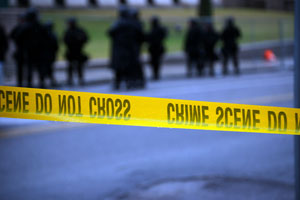False confessions to crimes occur with surprising regularity. Expert witnesses, including psychologists and others with similar training, are often called upon to explain to a jury or judge why someone would confess to a crime that he or she did not commit.
A man who is charged with murder in Brooklyn used an expert witness to challenge the reliability of the incriminating statements he made to the police. The prosecution countered with its own expert.
False Confessions and Expert Witnesses
One of the most notorious convictions based on a false confession occurred in 1995, when Daniel Taylor gave the police a signed statement admitting that he committed a double murder in Chicago. He confessed despite the fact that he was in police custody when the murder occurred. Decades later, powerful evidence of his innocence persuaded a court to vacate his conviction. After initially claiming that records showing Taylor’s incarceration were wrong, prosecutors were forced to drop the murder charges.
Taylor confessed because he was coerced by the police. Frightened suspects are particularly likely to make a false confession if the police claim that they will receive the death penalty or other serious punishment if they do not admit their guilt. Other threats (such as the claim that social workers will take away a parent’s children if the parent does not confess to a crime) are equally effective means of inducing innocent people to agree that they are guilty.
An article in Time points out that false confessions are not “a strange anomaly.” In fact, The Innocence Project reports that one in four wrongful convictions involve a false confession or an untrue admission.
Psychologists who have studied the problem of false confessions identify a number of characteristics (including adolescence, mental disability or illness, and certain personality traits) that make some suspects vulnerable to suggestion during a police interrogation. They also identify interrogation tactics (including lengthy interrogations, threats, and lies about evidence of the suspect’s guilt) that contribute to false confessions.
Expert witnesses have become instrumental in explaining to juries why a confession should be rejected as unreliable. While judges at one time tended to rule that such expert testimony was unhelpful because the possibility of a false confession was “common knowledge,” the prevalence of wrongful convictions combined with studies that confirm the reasons for false confessions have increasingly persuaded judges to allow defense experts to testify.
Kendal Felix’s Confession
Kendal Felix is charged with the January 2014 murder of wealthy Brooklyn real estate magnate Menachem Stark. Felix is accused of kidnapping Stark, strangling him, and setting his dead body on fire. Stark’s body was found in a Long Island dumpster.
According to the police, Stark, who was reputed to be a slumlord, had a long list of enemies who might have wanted to see him dead. Felix apparently became a suspect after the police found a video that showed Felix driving a van in Great Neck. The police said it was clear that he was not sure where to go.
Felix was arrested three months after Stark’s murder. The New York Post reported that Felix “spilled his guts” when he was questioned by the police. Felix allegedly told the police that “Erskine” told him that someone named Max owed him money and offered to give Felix a cut if Felix would help him force Stark to pay the debt.
Felix said that he helped Erskine grab Stark and wrestle him into a van. Felix then drove the van as Erskine taped up Stark. They picked up Erskine’s brother, identified only as Kendall, and later picked up another man, identified only as Irvine. Felix heard Irvine say “The dude is dead.” Irvine then left the van.
According to Felix’s statement, Felix and Kendall drove Stark to Long Island, where Kendall decided to dump Stark’s body into a dumpster. They then set the body on fire.
At the time, Felix was a construction worker who had done some work for Stark but never met him. Felix said Erskine was his “boss.” He also said that the crime was cooked up by his cousin. The police acknowledge that Felix was “not the mastermind” behind the plan to rob Stark. They have not identified a motive for the crime, although Felix’s alleged confession would suggest that the death was the unintended result of a botched robbery. Any death caused in the commission of a felony can be charged as a murder under New York law.
Only Felix has been charged with Stark’s murder. The police say they do not have sufficient evidence to charge the other accomplices, although they once told the Daily News that they had identified the “main player” in a plot to rob Stark. Why Felix’s confession, assuming it is reliable, does not constitute “sufficient evidence” is unclear.
Expert Witnesses
The defense has asked the judge to exclude the confession from evidence on the ground that it was coerced. A confession that was not made voluntarily cannot be used as evidence in a criminal trial.
The defense supported its motion with the testimony of Marc Janoson, who holds a PhD in psychology. Janoson has testified as an expert in false confessions in more than a dozen other cases. Janoson based his opinions on psychological testing of Felix and on interviews with Felix and his mother.
Janoson testified that Felix told him that he falsely confessed because the police told him they would deport his parents and he would never see his children again unless he admitted guilt. According to Felix, they also told him that he would not need a lawyer because he was not under arrest. The police deny making those statements. The confession appears on videotape, although anything the police said to Janoson before the taping started is not recorded.
Janoson concluded that Felix was coerced. Janoson explained that Felix is particularly vulnerable to coercion. He testified that Felix showed signs of neurological impairment following a 2010 motorcycle accident and has an IQ of 87, placing him in the bottom fifth of the population.
Testifying as an expert witness for the prosecution, forensic psychologist Kathy Yates disagreed. She viewed Felix’s ability to hold a job at Riker’s Island and to pursue a food handling certificate as proof that he had the psychological capacity to knowingly waive his right to remain silent and to confess.
Based on her own interviews with Felix, Yates said that Felix has a careful thinking style and was likely faking memory loss after his motorcycle accident. Yates also attacked the quality of Janoson’s psychological training, criticized him for believing what Felix told him when his statements could not be verified, and asserted that Janoson did not ask enough questions.
Previewing the Trial
If the judge decides that the confession is admissible, expect the experts to clash again if the case goes to trial. The defense will likely use Janoson in an effort to persuade the jury that Felix’s confession is unworthy of belief. Yates will likely offer the opposite opinion.
Some testimony at the pretrial hearing, however, probably will not make it to the jury. For example, Yates testified that Felix is a “calculated liar” who minimized his role in the offense for personal gain. A judge is likely to conclude that it is improper for an expert to testify that a witness is lying or is a liar by nature, since credibility determinations are generally reserved for the jury, not for other witnesses.












